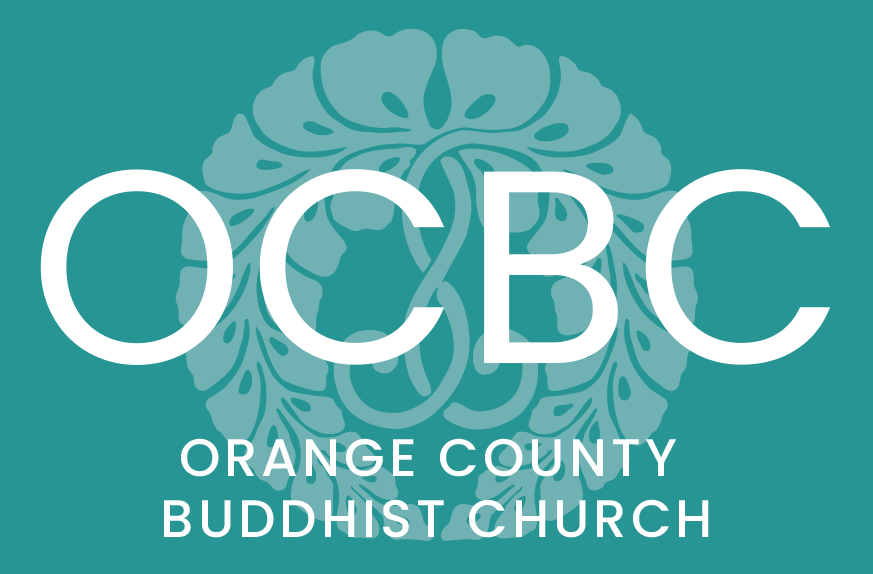Aspiration: Illuminated by the Working of the Dharma
September marks a new season in many areas of our lives. Schools reopen, temple services resume, and new calendars begin in universities, cultural classes, and community organizations. This seasonal turning brings with it a sense of aspiration—a heartfelt desire to learn, grow, and move forward.
College students may step onto campus with dreams of discovering their purpose. Others may begin new hobbies or cultural activities, seeking enrichment or personal growth. Some look to mentors or role models and think, “I want to be like her,” or “I admire the path he walks.” To aspire is to be moved by something greater than ourselves—something beautiful, meaningful, and full of possibility.
We might say that aspiration is like planting a seed. With the right conditions—nurturing, guidance, patience—it begins to grow. But what nurtures aspiration in a deeper, spiritual sense? In Jodo Shinshu Buddhism, aspiration is not merely a personal ambition or desire. It is not about chasing perfection. Rather, true aspiration arises from listening to the Dharma—and in that listening, something within us is transformed.
The Radiance of a Teacher
In the Larger Sutra of Immeasurable Life, Bodhisattva Dharmakara (Japanese: Hozo Bosatsu) expresses a powerful moment of aspiration. He encounters the Buddha Lokesvararaja (Sejizai Bosatsu) and is deeply moved. Gazing upon him, Dharmakara exclaims, “My teacher, you look so radiant!” That light was not just physical—it radiated wisdom, compassion, and liberation. In this moment of admiration, a sincere vow awakened in Dharmakara’s heart: to become a Buddha who would liberate all beings.
This is the very foundation of Amida Buddha’s Primal Vow, which is the spiritual source of our Jodo Shinshu path. Dharmakara’s aspiration was not rooted in pride or personal gain. It emerged from a deep encounter with the Dharma—a recognition of truth, beauty, and boundless compassion. His aspiration gave rise to a vow that transcends time and space, embracing all beings who call upon the Buddha’s Name.
The Dharma’s Gentle Working
In our tradition, we often speak of the working of the Dharma (hō no hataraki). While aspiration in secular life often relies on willpower and effort, in Jodo Shinshu, aspiration is nurtured by the Dharma itself. Just as a flower opens to sunlight not by force, but by the gentle warmth and light around it, we too are opened by the light of Amida’s compassion.
When we listen to the teachings with open ears, open hearts, and open minds, we begin to see ourselves more clearly. We begin to feel a quiet yet profound sense of settlement—a sense that we are accepted just as we are. This is not a loud or dramatic moment, but a subtle shift that brings stability and peace. It is joy that does not shout, but one that endures.
This is what it means to live with Dharma eyes and Dharma heart. With this view, our aspiration is not to become someone else, or to perfect ourselves, but to live honestly and gratefully in the embrace of Amida’s vow—to respond with humility, reflection, and Nembutsu.
Right Aspiration, Not Mere Desire
In Buddhism, aspiration is often distinguished from desire. Desire, or tanha, can bind us to the cycles of craving and suffering. But aspiration—chikai 誓or gan願 in Japanese—is a wish that is directed toward truth, compassion, and liberation. It is closely related to Right Aspiration in the Eightfold Path, which encourages us to cultivate thoughts of kindness, renunciation, and non-harming.
In Mahayana Buddhism, aspiration also appears as bodhicitta—the mind of awakening. This is the resolve to become awakened not only for oneself, but for the sake of all beings. For Shin Buddhists, this mind does not arise from our own power, but is awakened in us through the working of Amida’s great compassion. Even our aspiration, in the deepest sense, is part of the Buddha’s gift.
Transformation and Renewal
Aspiration, when grounded in the Dharma, becomes a source of transformation. It helps us face life’s challenges with resilience. It turns our suffering into understanding, our mistakes into insight. It encourages us to turn ourselves upward, to expand, to grow—not because we are trying to be someone else, but because the light of the Dharma calls us to become more fully ourselves.
A person may live a quiet life, never giving great speeches or accomplishing grand achievements. And yet, if that person listens deeply to the Dharma, lives in gratitude, and says the Nembutsu with sincerity, their life is one of profound aspiration and meaning. In the words of Rennyo Shonin, “For those who entrust themselves to the Nembutsu, every day is the best day.”
This is why, in Jodo Shinshu, aspiration is not measured by outward success. It is revealed in the subtle transformation of the heart. It is seen when we begin to live with appreciation for the causes and conditions that support us. It is felt when we bow our heads, say “Namo Amida Butsu,” and realize we are never alone.
The New Season of Our Lives
As we step into this new season—whether as students, parents, teachers, elders, or seekers—we are invited to reflect on our own aspiration. What calls to your heart? What do you long to understand or become? Who or what inspires you to listen more deeply to the Dharma?
No matter where we are in life, we are embraced by the boundless compassion of Amida Buddha. And when we allow that embrace to reach us, our aspirations become clearer. They are no longer rooted in “what I want to be,” but in “how I may live with gratitude and humility.”
Let us walk this path together, hand in hand, supported by one another and by the wisdom that has been passed down to us. May your September be filled with fresh aspiration—not the striving of ego, but the soft determination of the heart moved by the Dharma.
Gassho,
Namo Amida Butsu


